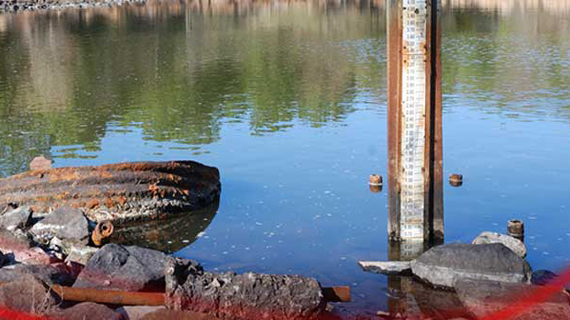
GWERU has become the latest city to experience serious water shortages caused by drying up of supply dams after Bulawayo and as usual, it appears the local authority is grappling for answers at the 11th hour.
The Midlands capital’s major source of water Gwenero Dam is 1,2% full, forcing the city to rely on Amapongokwe Dam for 90% of its supplies.
However, the Gweru City Council has noted that this would not be sustainable because the piping system from Amapongokwe Dam was not designed for the levels of water that have to be pumped from the reservoir.
Assistant town clerk Tapiwa Marerwa told Southern Eye at the weekend that at current consumption levels, the city could run out of water by month end.
He said council was also not able to pump enough water even from Amapokongokwe Dam because only two of the four pumps were fully functional.
Marerwa appealed to residents to change their consumption rates to conserve the little water that is available. To mitigate the crisis, the local authority plans to drill 31 boreholes, but is yet to secure a $138 000 loan to undertake the project.
This problem is not peculiar to Gweru. Zimbabwe’s major cities – Harare and Bulawayo- have been facing perennial water shortages for the past two decades.
Like Gweru, Bulawayo has outgrown its five supply dams, most of which dry up a few months after the end of the rainy season.
- Chamisa under fire over US$120K donation
- Mavhunga puts DeMbare into Chibuku quarterfinals
- Pension funds bet on Cabora Bassa oilfields
- Councils defy govt fire tender directive
Keep Reading
The connection of Mtshabezi Dam to the city’s water system in July has done little to alleviate the crisis in Bulawayo.
Successive Zanu PF governments, not the much talked about sanctions, are to blame for the crisis the country’s major cities are facing in terms of water supply.
The water infrastructure in most urban centres was put in place by the colonial government. In the case of Bulawayo, the last dam was built before independence in 1980.
Mtshabezi Dam was not meant for Bulawayo.
The government has to wake up from its slumber and explore lasting solutions to the water problems that have not only spawned disease outbreaks, but have also seriously affected the economy.










